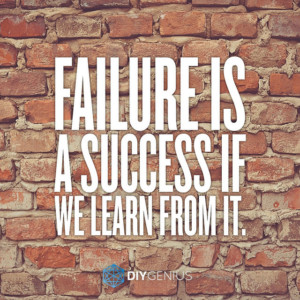
Some organizations are poor or marginal performers, some high, and some truly great. Jim Collins, in “Good to Great” (2001) describes the differences among the latter two. Much of the difference boils down to people and the culture that is fostered within the organization. They foster learning in all forms, including learning from mistakes. They are typically “humble” and accept helpful input from outside, admitting when and where they need to improve. [Read more…]













 Ask a question or send along a comment.
Please login to view and use the contact form.
Ask a question or send along a comment.
Please login to view and use the contact form.